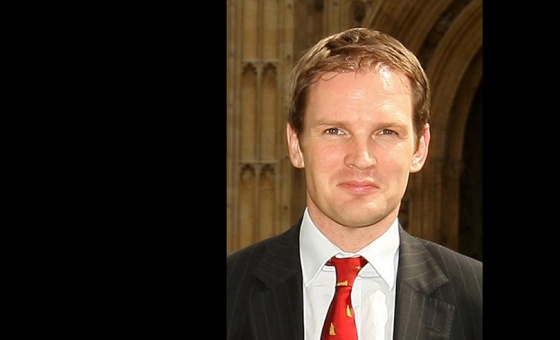This is the last article you can read this month
You can read more article this month
You can read more articles this month
Sorry your limit is up for this month
Reset on:
Please help support the Morning Star by subscribing here
EDUCATION should be treated as the central nervous system of any decent society. Just as our central nervous systems control our thought, movement, emotions, breathing, body temperature, the quality of our education system influences how and how well our society functions for its citizens.
Failure to handle the central nervous system with due care risks catastrophic damage to the body.
Failure to invest in our education system risks serious harm to children, young people and education staff, including teachers, and to our whole society, and one way or another, to all of its citizens.
The EIS, as Scotland’s largest education union, representing 80 per cent of teachers in Scotland, does not believe that the Scottish government and local authorities have fully grasped the centrality of education and the critical importance of teachers, support staff and allied professionals who work in education, to the health of our society as a whole.
The vital signs speak for themselves.
In 2007, the SNP — the main party of government since — pledged in its manifesto that it would reduce class sizes. In 2024, children in Scottish schools continue to be taught in the biggest classes in the OECD.
Fast forward to 2021, five years or so after the Scottish government had declared education and closing the poverty-related attainment gap its top priority — another Scottish Parliament election, another SNP manifesto. This time, two very big promises to invest big in Scottish education — firstly, to recruit 3,500 more teachers before 2026 and to start addressing teacher workload by reducing teacher class contact time by one-and-a-half hours per week.
Are we yet seeing the vital signs of improvement?
For the second year in a row, teacher numbers have fallen; pupil numbers have not. This is despite the Scottish government having provided, albeit modest sums of money — £145 million a year for two years — to local authorities to enable the recruitment of additional teachers on a permanent basis. Something’s not working as it should be with the ringfencing of funding for education.
Or with the Scottish government’s stated commitment to protecting teacher numbers. Last month, Glasgow City Council — the largest local authority in Scotland with the highest rates of child poverty — quite boldly announced that it would cut 450 teaching posts over the next three years, starting with 172 this year.
Education cuts of this magnitude would represent a significant act of self-harm, not only by Glasgow city but by the Scottish government, to continue the analogy of Scottish education as the country’s central nervous system. Yet one Glasgow-based SNP MSP sought to justify the cuts, stating that protecting teacher numbers is a “luxury” that can no longer be afforded.
As it is, teachers in Glasgow, in Edinburgh, in Gairloch, in Greenock, teachers countrywide, are overworking because there are far fewer of them than are needed in our schools, and the Scottish government has made no progress to speak of in implementing its own manifesto promise to bring teacher class contact time closer in line with OECD averages.
Teaching amongst the largest classes in the OECD for the third-largest amount of time per week in the OECD — 22.5 hours — with insufficient specialist support for the 37 per cent of young people with additional needs, and not nearly enough time for preparation of lessons and marking of pupil work, the majority of teachers in Scotland are working the equivalent of a day a week extra, unpaid, every single week.
While the Scottish government and local authorities underinvest in education, teachers — the vast majority of them women — are paying the price and massively subsiding the education system with free work.
At the same time, many are also suffering the physical and emotional effects of rising levels of violent, aggressive and distressed behaviours — partly as a result of unmet additional support needs — from young people in our classrooms. This is wholly unsustainable, unequivocally unjust and should be completely unacceptable to those who hold responsibility for education in Scotland.
But this is the lived professional experience of thousands of Scottish teachers — a reality that’s traceable back to underfunding of education for more than a decade, and a long-running blame game between national and local government as to whose fault it really is. Meanwhile teachers and support staff struggle day after day on the front line to provide quality education for our young people.
To add Kafkaesque insult to injury, both the Scottish government and local authorities have even been heard to blame teachers themselves and the pay deal that their strike action won last year, for cuts to services both within and beyond school education.
Since submitting this year’s pay claim of 6.5 per cent — less than MSPs will get by way of a pay rise — the teachers’ side of the Scottish Negotiating Committee for Teachers has had nothing other than a litany of excuses from the Scottish government and the Convention of Scottish Local Authorities as to why no starting pay offer has been made after nearly three months of waiting, another vital sign that Scottish education is not being handled with the critical care that it needs by government or employers.
This is not good news for our young people, our young citizens, who deserve and must have good-quality education so that they’re equipped socially, emotionally and cognitively to navigate, contribute to and ultimately protect, human society from the many and growing threats that we face. Scottish education — what should be treated as the country’s central nervous system — needs more care and sustenance, and urgently, or it risks damaging decline.
Andrea Bradley is general secretary of the Educational Institute of Scotland.









